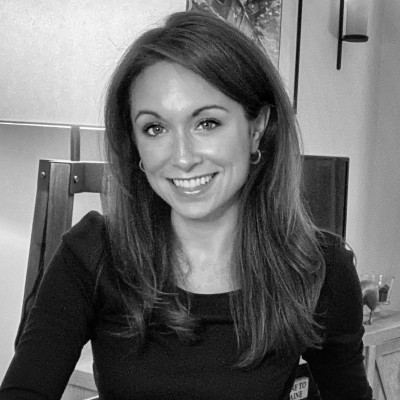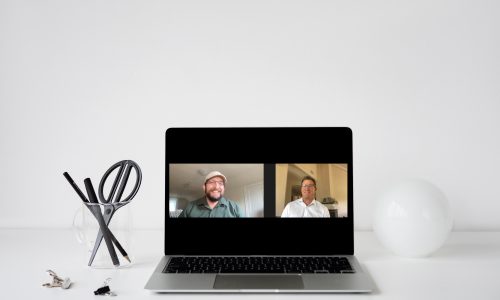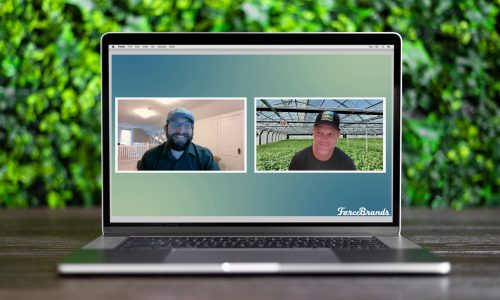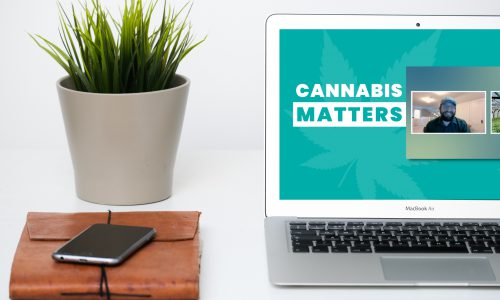More than just a CBD brand, Element Apothec is at the intersection of wellness and beauty. Its founding members came together through LinkedIn networking and, after several conversations, the company was born.
Through innovation and impact, Element Apothec seeks to address health and well-being through a preventative and integrative lens — all while taking care of the planet, too.
We caught up with Element Apothec’s Chief Scientific Officer and Co-Founder Dr. Swathi Varanasi to learn more about how the company is making an impact on the health of people as well as the planet.
Watch our exclusive interview and read the transcription of the conversation below (edited for clarity).
Dr. Swathi Varanasi: Coming from a social responsibility standpoint, we look at what we can do for the planet. We are 1% for the Planet, and also with every purchase, we plant a tree so we’re creating an Element Apothec forest somewhere in the world, which is really great.
Eric Rosen: Dr. Swathi, thank you so much for joining us on Cannabis Matters today.
SV: Thank you for having me.
ER: It’s our pleasure. You’ve had quite the journey in cannabis and I’d love to hear how you got into the industry and what your ‘why’ is for being in the space.
SV: I never thought I would end up in the cannabis space and I couldn’t be happier to be here. I was always interested in integrative health — that was the root of my interest and what drew me to herbs in the first place. I knew from a young age that I wanted to be in integrative health. I knew the value of preventative medicine. Whenever I saw a pharmacist in the pharmacy, to me, they were standing right between the supplements as well as the prescription medications so I thought it was this really great in between.
Once I got to pharmacy school, I really realized the emphasis on the curative aspect rather than the preventative. I knew that with my pharmacy knowledge, I would be able to use that in the context of preventative medicine and so I was looking for an opportunity and a mentor in that space. I found an incredible mentor, Dr. Pam Tarlow who I did a rotation with as I was finishing pharmacy school.
After that, I moved out to train with her full-time and we decided to start the first-ever and still only postdoctoral residency training program for pharmacists interested in this unconventional space. I was able to start that program with her and be the first resident. I trained and built the pharmacy in a clinic setting with an integrative focus and so it was through that that I really got to delve into herbs and traditional Chinese medicine, ayurveda, and also cannabis. I just fell in love with the plant and with the endocannabinoid system. I always joke but it’s not really a joke that anyone in science, once they learn about the endocannabinoid system and the possibility and its capabilities, then people are forever changed and the nerdiest people love cannabis and they love the endocannabinoid system. Because once you know about it, you can’t not know about it.
That’s what led me to cannabis. It’s been a very incredible path. After I finished my residency training, I did a lot of consulting. I worked with some small brands to help with product formulation and medical education and blog content and different content creation things. Since then, I met my co-founders of Element Apothec. We’re a CBD botanical wellness brand and I met them through LinkedIn, through networking, and one conversation led to another and then we decided to start our brand. So it’s been an incredible, unexpected path but I always say the things that are the most important to me are innovation and impact, and how I can do that through a preventative and an integrative lens.
ER: You are a trailblazer. You have paved the way for other healthcare professionals to embrace, pursue, think about, and talk about cannabis and non-traditional career paths through creating postdoctoral training programs, industry internships, and online courses. I’d love to hear more about this from your side — why you’ve chosen this path and also why it was so important for you to chart your own course.
SV: I think that with many people, we have these passions, we have these interests, and these things that we’re drawn to but I think that what we’re not taught in school, particularly in pharmacy school and undergrad and a lot of the schooling I’ve undergone, is that there’s just not enough discussion about forging your own path and going after what you really want.
I can say in particular from a pharmacy sphere, you can do the quintessential retail, you can be in the hospital, and then there are some people within the industry but that’s within the pharmaceutical industry. But there’s not really a lot of discussion on how so many of our skills are transferable, and I think that this is really important because this is not just a healthcare professional thing. Any single career path that anyone can take comes with a level of schooling or training and then with that, how can we use a lot of those skills in different contexts.
I think that not enough people talk about how meaningful communication and strong communication skills really do apply to so many different aspects of any role. Writing, for example, is another really great skill and I think that we need to look at what types of skill sets we have as individuals and as potential professionals and how we can apply those to different things and channel them into different avenues that we find bring us joy and that light us up.
I think at the end of the day, so many people — especially I can speak from the healthcare professional sphere — are burning out now just across any sort of career path. I think a lot of people are looking for something that’s going to make them excited to get out of bed in the morning and but still something where they can still apply a lot of their strengths to.
I think that being a part of that conversation and driving some of that conversation really just brings me a lot of joy because I just wish it was something that I had an opportunity to do. For example, at Element Apothec, one of the things I really wanted to do is provide students the chance to learn about medical writing and to learn about how they could be a part of entrepreneurship and so I started an internship program that’s called the Scientific Communications Internship Program. Initially, it was only for pharmacy students because that’s my particular background but we’ve opened it up to nutritionists and other healthcare professionals, too — anyone who’s interested in medical writing. I feel like I’m able to give back to a lot of the mentors who might not even know that I really look at them as mentors because a lot of them I’ve interacted with virtually or they’re people who I’ve just followed for years and have really just taken note of what they’ve done and what they’ve been able to achieve and so the fact that I’m able to now do that from where I am in my career path is just the best feeling.
ER: Element Apothec is an international award-winning beauty and wellness brand. You’ve co-founded this and currently serve as the Chief Scientific Officer. What does Element Apothec offer and what unique niche is it carving out in the marketplace? What’s the story behind it?
SV: At Element Apothec, we are very big into transparency and very big into what we can do as a brand to help the overall population but also what we can do to help the world and the planet and so we come from a social responsibility standpoint, where it’s not only the products that we provide but what other services can we provide, what can we do to be there for the consumer every step of the way.
We do provide products. We have CBD botanical wellness products. We utilize CBD and other cannabinoids as ingredients in our products and so that sometimes can put us into a box in some people’s minds that we are a CBD brand, which is not false, but we also utilize a lot of synergistic botanicals and so coming from an integrative health standpoint and leading a lot of the product innovation is really important to me. We incorporate the beauty and benefits of cannabis, but we also look to see what else nature can provide us. So to me, what other botanicals are out there, what other herbs can we look to?
And also, too, with integrative health, the way that I view health and wellness is that it really is the intersection of all these different modalities. At the end of the day, it’s all about the patient and the patient being the center of the discussion and we call it patient-centered decision-making. This is all about coming to the conversation as a healthcare professional and exploring the possibilities.
Say someone is having issues with sleep, we can talk about sleep hygiene, we can talk about diet, we can talk about herbs that they could use, especially cannabinoids like CBD and CBN, and then we can also talk about how everything else is going in their life, how their stress levels are, are they incorporating other mindfulness activities that could help them.
At the end of the day, that’s what’s most important to me — how does it all work together? I knew if I wanted to go into the whole CPG space, especially in the cannabis space, that I wanted to incorporate cannabis but not let that be the only thing in our products. That’s really important to me from a product Innovation standpoint, too. Like what are we doing to really push the envelope?
We are a doctor-formulated brand so of course I’m a doctor by training but then also we have an incredible range of experts on our medical advisory team from an integrative gastroenterologist to an integrative dermatologist, to integrative pharmacists with formulation experience. We all put our heads together and just do a lot of brainstorming on what is the need in the market. A lot of the need, coming from our clinical experience, is what patients are asking for, what are they not finding, and how can we use botanicals and cannabinoids and other really innovative compounds and distill things down so that we can put it all together for the consumer.
The other thing that I’m really passionate about and one of the main reasons why me and my co-founders work so well together is that we all see the value of education.
ER: You’re obviously a big-picture thinker. You’re an expert in integrative health and thinking about medicine from an integrated holistic standpoint. How do you think about, at Element Apothec or with other brands in the marketplace, about the art and science of building teams?
SV: What we have found and what has worked really incredibly has been everyone sitting down and thinking about what their particular specialties are and what they excel at — what their strengths are. And then what we are lacking, or what we need a little bolstering on. So that’s the way that we’ve looked to grow the team and a way that’s been very successful for us. Where are we looking to go? What type of impact are we looking to have? And then what kind of support do we need? We don’t want to overextend ourselves. We also notice that each one of us is great at certain things and so how can we bring on other people to the team who can complement us and really augment and like excel in what they’re amazing at.
The more you can have people tap into what they’re the best at, the better the overall team does.
ER: Okay, crystal ball time. Do you ever see cannabinoids being treated as a staple or a food group?
SV: I’ve never been asked this. As a staple or a food group. I don’t know about a food group necessarily but I see it as having a very big role in preventative health overall.
ER: What are some of the obstacles you’ve come up against as an integrative health professional that might seemingly be at odds with traditional Western medicine?
SV: One of the biggest things I find is that the integrative space and the conventional space have people who live in both of those camps and are very much a fan of those camps. They don’t really hang out in between and they don’t really hang out with each other. And so to be someone who kind of bridges both has been quite an interesting obstacle. Because from a conventional standpoint, some people are like, ‘I don’t understand why you would throw away your education?’ and things I’ve heard where people think that I’m not using my pharmacy knowledge or my healthcare professional knowledge daily, which I absolutely do use almost every day, if not multiple times a day. There are certain patient populations and certain scenarios where prescriptions have a great spot in healthcare. I just think that the emphasis right now on only that is the issue and that there’s more to healthcare and health and wellness and everything within medicine than just limiting it to one or the other.
And so to straddle both has been a very interesting place because if I say I’m an integrative health pharmacist, some people view that as ‘Oh she’s anti-prescription.’
ER: On the consumer side, I always think about people who are completely anti-cannabis and who will never be down for it until their doctors tell them yes or they’re just anti because they’re anti. Then there are people who are like, ‘Cannabis cures everything, including the common cold and death!’ And neither is true. The truth is going to be somewhere in the middle and it’s going to be scientists like yourself that help us get there.
SV: Definitely.
ER: Dr. Swathi, thank you so much for being with us here today. It’s been an absolute pleasure and I wish you all the best and success in the months and years to come.
SV: Thank you so much. Thank you. I appreciate it. And thank you so much for having me. This is great.
Interested in learning more about the cannabis industry and how ForceBrands’ cannabis practice can help grow your business or career? Reach out to Eric Rosen to start the conversation.






